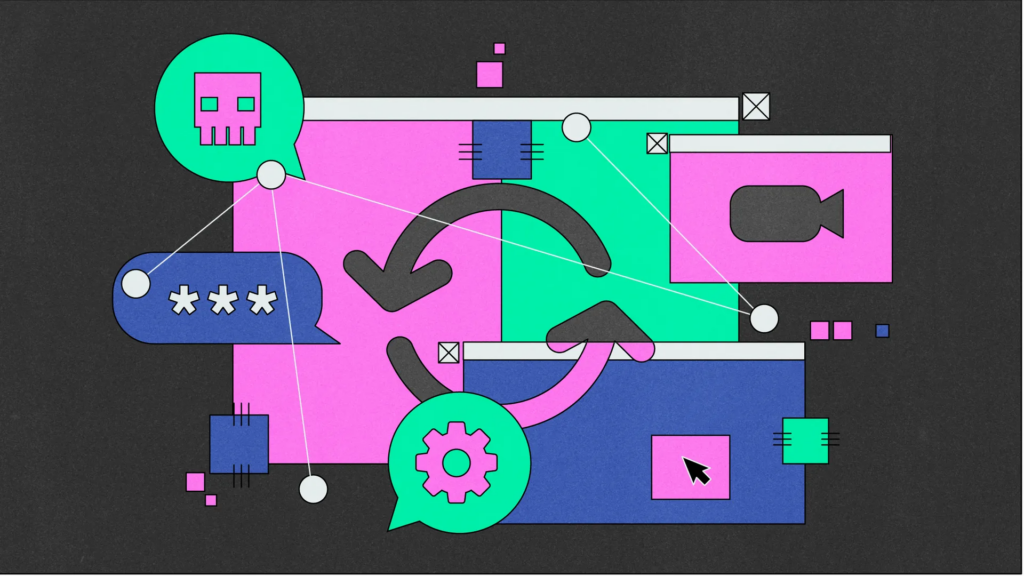The future of AI is full of promise, but it also presents several significant challenges that need to be addressed for AI to reach its full potential while ensuring its responsible and ethical development. Here are five key challenges to the digital future of AI:
- Ethical and Bias Concerns: AI systems can perpetuate and amplify biases present in the data they are trained on. Addressing bias and ensuring fairness in AI algorithms is a crucial challenge. It involves developing techniques for bias detection and mitigation, as well as establishing clear ethical guidelines for AI development and deployment. Building diverse and inclusive teams to develop AI systems can also help mitigate bias.
- Privacy and Data Security: As AI relies heavily on data, ensuring the privacy and security of user data is a paramount concern. Striking a balance between collecting data for AI training and protecting individuals’ privacy is a challenge. Regulatory frameworks like GDPR and the California Consumer Privacy Act are steps in this direction, but ongoing efforts are needed to adapt to evolving technologies and data usage.
- Transparency and Explainability: Many AI algorithms, especially deep learning models, are often considered black boxes, making it challenging to understand their decision-making processes. Ensuring transparency and explainability in AI systems is vital for user trust and accountability. Research into interpretable AI models and developing standards for explaining AI decisions are ongoing efforts.
- Safety and Robustness: AI systems can exhibit unexpected behavior or vulnerabilities, especially in safety-critical applications like autonomous vehicles or healthcare. Ensuring the safety and robustness of AI systems is a significant challenge. It involves thorough testing, validation, and continuous monitoring of AI algorithms to minimize the risk of accidents or failures.
- Job Displacement and Economic Impact: The widespread adoption of AI has the potential to disrupt traditional job markets and economic structures. Preparing the workforce for the digital future by promoting education and reskilling programs is essential. Policymakers must also consider strategies like universal basic income or alternative employment opportunities to mitigate the negative economic impact.
These challenges are interconnected and require a collaborative effort from governments, academia, industry, and civil society to address. Building a future where AI benefits society while minimizing its potential harms demands a multidisciplinary approach, clear regulations, and continuous innovation in AI research and development.

Unlocking the Potential of AI: Overcoming 5 Key Challenges
Artificial Intelligence (AI) is poised to revolutionize the way we live, work, and interact with technology. From self-driving cars to personalized healthcare, the possibilities seem limitless. However, alongside these incredible opportunities, there are significant hurdles that must be overcome to ensure a bright digital future powered by AI.
In this article, we’ll delve deeper into the five key challenges facing the future of AI, and how researchers, policymakers, and industry leaders are working tirelessly to address them.
1. Ethical and Bias Concerns: Ensuring Fairness in AI
One of the most pressing issues in AI is the ethical use of technology. AI systems can inadvertently perpetuate biases present in the data they are trained on, leading to unfair outcomes. For instance, biased algorithms in hiring processes or lending decisions can have far-reaching social consequences.
To tackle this challenge, experts are developing techniques for bias detection and mitigation. Additionally, ethical guidelines for AI development and deployment are being established, emphasizing transparency and fairness. Diverse and inclusive teams are also contributing to more equitable AI systems.
2. Privacy and Data Security: Balancing Data Needs and Privacy
AI thrives on data, but safeguarding user privacy is paramount. Striking the right balance between collecting data for AI training and protecting individuals’ privacy is a complex challenge. Regulatory frameworks like GDPR and the California Consumer Privacy Act are essential steps in this direction, but continuous efforts are needed to adapt to evolving technologies and data usage.
3. Transparency and Explainability: Shedding Light on AI Decisions
Understanding how AI algorithms make decisions is crucial for user trust and accountability. Many AI models, especially deep learning ones, are often seen as “black boxes.” Researchers are actively working on developing interpretable AI models and establishing standards for explaining AI decisions, making technology more transparent and user-friendly.
4. Safety and Robustness: Ensuring AI Doesn’t Fail
AI systems, especially those deployed in safety-critical applications like autonomous vehicles and healthcare, must be rigorously tested and validated. Ensuring the safety and robustness of AI systems is a significant challenge. Ongoing efforts are directed at minimizing the risk of accidents or failures through continuous monitoring and improvements in algorithm design.
5. Job Displacement and Economic Impact: Preparing for Change
The rapid advancement of AI technology raises concerns about job displacement and economic disruption. To address this, proactive measures are necessary. Workforce development programs, reskilling initiatives, and upskilling opportunities are essential for preparing individuals for the changing job landscape. Policymakers are also exploring strategies such as universal basic income to provide economic stability during these transitions.
The digital future powered by AI holds immense promise, but it also presents substantial challenges. Addressing these hurdles requires collaboration across various sectors and continuous innovation in AI research and development.
As we navigate this transformative era, staying informed about AI’s evolution is crucial. Stay tuned for more updates on how AI is shaping the world, and how we can harness its potential while mitigating its risks. Together, we can unlock the full potential of AI for a brighter, more equitable future.
Read More : Google May Delete Your Old Accounts. Here’s How to Stop It
- What are the main challenges facing the future of AI?
- The future of AI faces several challenges, including ethical concerns, data privacy, job displacement, bias in AI systems, and the need for continuous research and development.
- How does AI impact job displacement, and what can be done to mitigate it?
- AI can automate tasks, potentially leading to job displacement in some industries. To mitigate this, reskilling and upskilling programs, as well as fostering a culture of lifelong learning, are crucial.
- What ethical concerns are associated with AI, and how can they be addressed?
- Ethical concerns in AI include biases in algorithms, privacy violations, and the potential misuse of AI for malicious purposes. Addressing these concerns requires transparent AI development, robust ethical guidelines, and regulatory frameworks.
- Why is data privacy a significant challenge in the future of AI?
- AI systems rely on vast amounts of data, and protecting individuals’ privacy while using this data is a challenge. It involves creating strong data protection laws, encryption, and secure data handling practices.
- How can we reduce bias in AI systems?
- Reducing bias in AI systems requires diverse and representative datasets, bias detection tools, and continuous monitoring of AI models. It also involves fostering diversity and inclusivity in AI development teams.
- What role does government regulation play in shaping the future of AI?
- Government regulation is essential to ensure the responsible development and deployment of AI. It can set standards for ethical AI, data protection, and safety in AI systems.
- What is the future of AI research and development?
- The future of AI research and development involves advancements in machine learning algorithms, natural language processing, robotics, and AI ethics. Collaboration between academia, industry, and governments will play a vital role in shaping this future.
- How can AI contribute to solving global challenges, such as climate change and healthcare?
- AI can analyze vast datasets to develop solutions for global challenges. For instance, it can optimize energy usage, improve healthcare diagnostics, and predict natural disasters.
- What are the potential risks associated with the rapid advancement of AI?
- Risks include the misuse of AI for harmful purposes, job displacement, and the potential for autonomous AI systems making biased or unethical decisions. These risks highlight the need for responsible AI development and regulation.
- What can individuals and organizations do to prepare for the future of AI?
- Individuals can invest in learning AI-related skills, adapt to changing job markets, and stay informed about AI developments. Organizations should prioritize ethical AI, invest in AI talent, and embrace AI as a tool for innovation and efficiency.
These FAQs provide insights into the challenges and considerations surrounding the future of AI, a rapidly evolving field with significant societal and technological implications.
Do Follow us on Instagram : Click Here
Don’t Forget to Follow us on LinkedIN – Click Here





